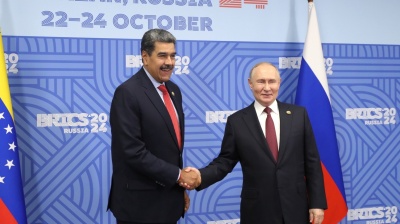US military personnel have commenced joint training exercises in Panama following a controversial bilateral agreement that has sparked widespread public opposition in the Central American nation.
The drills, which began earlier this month, represent the first deployment under a security pact signed in April that permits US forces to operate around the strategically vital Panama Canal. The arrangement allows American troops to train alongside Panamanian security forces whilst maintaining the host nation's constitutional sovereignty over its territory.
US forces are conducting jungle warfare training with local security personnel, according to a statement from the US embassy in Panama City cited by AFP. Each deployment requires explicit approval from Panamanian authorities, with officials emphasising that no permanent military installations will be established under the terms of the agreement.
The security pact emerged following pressure from US President Donald Trump, who has asserted that China wields excessive influence over the waterway and vowed to “take back” the Canal without ruling out military action. The canal, built by the US in 1914 and handed over to Panama in 1999, handles approximately 40% of US container traffic and 5% of global trade, making it a critical artery for international commerce.
Hong Kong-based conglomerate CK Hutchison Holdings, which controls two key terminals at the end of the canal, has bowed to pressure from the White House and moved to sell the ports to BlackRock as part of a $22.8bn agreement. But the deal has stalled following criticism from Beijing, which decried US interference and accused CK Hutchison of “betraying” Chinese interests.
In February, Panamanian President José Raúl Mulino also confirmed the country had pulled out of China's Belt and Road Initiative framework, which it joined in 2017, making Panama the first Latin American nation to exit President Xi Jinping's trillion-dollar infrastructure programme.
Mulino's administration has defended the military arrangement as necessary to combat organised crime and drug trafficking whilst ensuring the canal's uninterrupted operation. Officials maintain that Panama retains complete control over its military facilities and that the agreement operates within constitutional parameters.
However, the deployment has triggered significant domestic opposition. Trade unions and civic organisations have staged demonstrations, arguing the arrangement "violates national sovereignty" and represents a veiled return to the era of American military presence that ended in 1999 under the Torrijos-Carter Treaties.
Critics fear the exercises could pave the way for a gradual reintroduction of US bases, despite official assurances to the contrary. The protests reflect deep-seated concerns about foreign military presence in a country that achieved full control of the canal only 26 years ago.
Both governments have stressed the temporary nature of the arrangement and its importance for regional stability. The exercises continue a history of military cooperation between the two nations, including previous multinational training operations such as the Panamax exercises involving other Latin American countries.
The success of this arrangement will likely depend on whether Washington can demonstrate genuine respect for Panamanian sovereignty whilst addressing legitimate security concerns around one of the world's most important shipping routes. For Panama, the challenge remains managing domestic opposition whilst fulfilling its commitments to protect a waterway upon which global commerce increasingly depends.
News

APEC meeting closes in South Korea, WTO dead and buried
This was not a summit. It was a eulogy for the WTO, and APEC just lowered the flag to half-mast.

Turkish state grabs another fintech as company seizures continue at pace
Turkey first seizes companies, then tries the suspects. Some companies are sold before the trial process.

Ukraine’s elite HUR forces turn the tide in the battle for Pokrovsk, as Russia’s effort to capture key logistics hub fails
The battle for Pokrovsk became intense early on November 1and it looked like the fall of the key logistics hub to Russia was imminent. But a bold counterattack by Ukraine’s elite HUR forces seems to have turned the tide.

US prepares attack on Venezuela as Maduro begs Putin for aid
The Trump administration has reportedly drawn up a list of potential military targets within Venezuela as part of its intensifying pressure on President Nicolás Maduro, who has turned to Moscow seeking urgent military assistance.


_1761305900.jpg)
_1761147529.jpeg)
_1759927176.jpg)